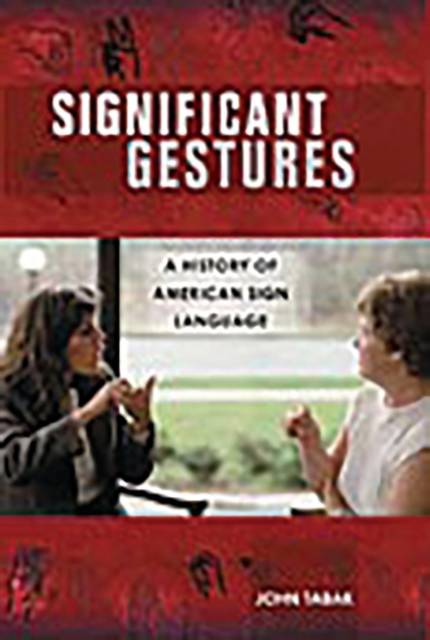
- Retrait gratuit dans votre magasin Club
- 7.000.000 titres dans notre catalogue
- Payer en toute sécurité
- Toujours un magasin près de chez vous
- Retrait gratuit dans votre magasin Club
- 7.000.0000 titres dans notre catalogue
- Payer en toute sécurité
- Toujours un magasin près de chez vous
Description
Tabak has created a fascinating exploration of a unique and uniquely beautiful North American language. The story begins in 18th century France in the first schools to use signed language as the language of instruction. Early in the 19th century a few individuals introduced a variant of this language into the United States and developed an educational system in which to use it. Out of these schools come members of a new American social class, the Deaf--with a capital D--who, united by a common signed language, create institutions through which they can participate in society on terms equal to those of other constituent groups. This strategy proved extremely controversial among all but the Deaf. The controversy lasted a century, during which time American Sign Language evolved along racial lines and in response to the pressures of those who sought to eliminate the use of American Sign Language.
Today, new ideas in art, science, and education have supplanted much of the old opposition to American Sign Language and Deaf culture. New legislation and new technologies have also had profound effects on the lives of American Deaf. As a consequence, American Sign Language is evolving faster than ever before.Spécifications
Parties prenantes
- Auteur(s) :
- Editeur:
Contenu
- Nombre de pages :
- 240
- Langue:
- Anglais
Caractéristiques
- EAN:
- 9780275989743
- Date de parution :
- 01-09-06
- Format:
- Livre relié
- Format numérique:
- Genaaid
- Dimensions :
- 162 mm x 238 mm
- Poids :
- 517 g

Les avis
Nous publions uniquement les avis qui respectent les conditions requises. Consultez nos conditions pour les avis.






